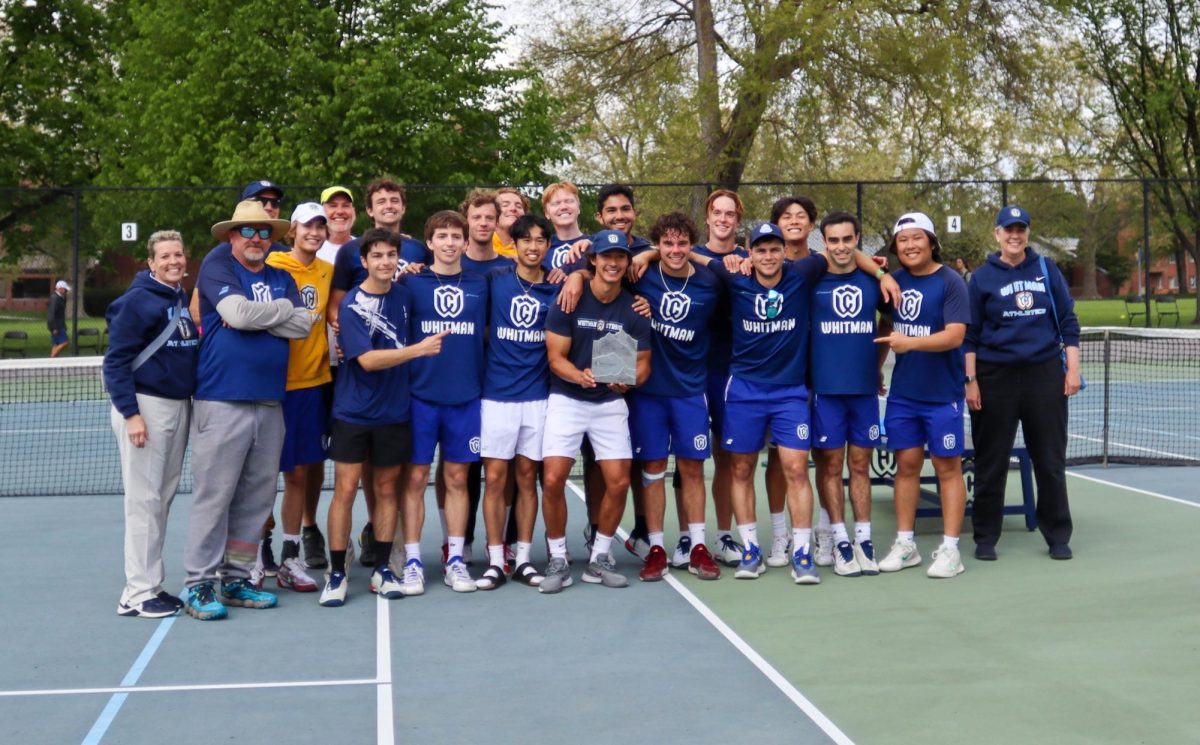
With all of the media attention that has been brought upon the Miami Dolphins over the course of the past few weeks, it would give the impression that athletic locker rooms are full of misguided thugs. However, it appears that either by recruiting or the culture of Whitman, the school doesn’t seem to have any type of serious conflict on their sports teams.
For those unfamiliar with the aforementioned story, Dolphins tackle Jonathan Martin took an unexpected leave of absence from the NFL team several weeks ago. Information leaked out slowly over several weeks as it was reported that Martin left the Dolphins due to allegations of bullying by his teammate Richie Incognito. Incognito has since been suspended indefinitely by the team and has in turn filed a grievance for wrongful suspension against the team.
Reports after this initial conflict have worked to question the accuracy regarding the series of events and have clouded the waters of what was actually going on in the Dolphins locker room. There have been some statements that actually dictate that Incognito was Martin’s best friend on the team from Dolphins quarterback Ryan Tannehill. In an interview with Fox’s sports Jay Glazer, Incognito offered to hand over his cell phone to Glazer to have him look at the allegedly harassing texts between him and Martin.
Glazer said on the air that there were over 1,300 texts between the pair over the last year, many containing explicit or threatening material coming from each player. However, if one party feels that they getting harassed, rarely is there that much communication between two people. The Dolphins had resources to mediate such an event, so the next few weeks will be intriguing to see what happens to the franchise and individual players involved.
This incident has prompted a widespread discussion in professional and college sports about the danger of the “locker room attitude.” This term has been used to describe a scenario where things may get said that seem acceptable in the context of the locker room, but when observed by an outsider are insensitive and often offensive.
When interviewed about the atmosphere promoted among her team, women’s basketball coach Michelle Ferenz talked about how much she hopes that her players are willing to talk about their issues.
“Our team works very hard on communication, so that everyone feels comfortable and respected at all times,” said Ferenz.
By promoting a culture of open communication and speaking about problems before they divide the team, Ferenz has effectively created a cohesive unit. The focus of the team can be winning on the court, not fighting amongst the team.
When prompted about off-the-court problems, Ferenz was open to talk about how her team creates a comfortable environment for all players.
“We talk about how conflict should be brought up and dealt with,” said Ferenz. “Some people really don’t like confrontation where others are very upfront, so working through those differences are important.”
In speaking with current and former athletes on campus, there is a much stronger sense of being friends with teammates as opposed to anything that could be construed as hazing. In an environment as socially conscious as Whitman, it is no surprise that scandal has evaded coming to campus. Juniors Brandon Gagliardi and Jazmin Moledina gave the impression that they had never felt anything short of acceptance among their teammates. Both also currently live with at least one current or former teammate, a testament to how friendships are formed in practice and carry over into other aspects of life.
Gagliardi, a member of the men’s basketball team, said that the team has never had any internal issues that he noticed.
“I live with five of the other guys on the team, so we are basically hang[ing] out with each other all the time” said Gagliardi. “Because of all the time we spend with each other, I just feel more comfortable around my teammates.”
By spending so much time with each other, it is natural to realize what things are off limits and what can really affect the emotions of those on the team.
Moledina, a former volleyball player, had a similar sentiment about her time playing at Whitman as well as on her high school team. She noted that everything the team did was in good fun and mostly worked to get a laugh.
“Sometimes for my high school team, we would all wear these ridiculous costumes on game day,” said Moledina. “But everyone laughed it off, and at the end of the day, [it] was a great time.”
By involving her whole high school team, they were able to dispel any notion that any single girls was getting singled out but were still able to have inside jokes as a team.
After speaking with athletes and coaches throughout Whitman, it becomes increasingly apparent that these huge rifts inside teams don’t occur with any type of frequency. The atmosphere presented to the public, as well as in a more intimate setting, fosters an attitude where teammates are first and foremost friends as well as competitors.
It is terribly unfortunate that these scenarios have been playing out in professional leagues as well as at some college programs such as the recent Rutgers basketball scandal in which men’s basketball coach Mike Rice was fired for verbally and physically abusing his players. Whitman can feel comfortable knowing that its teams are cohesive units of athletes more focused on winning than hazing.



